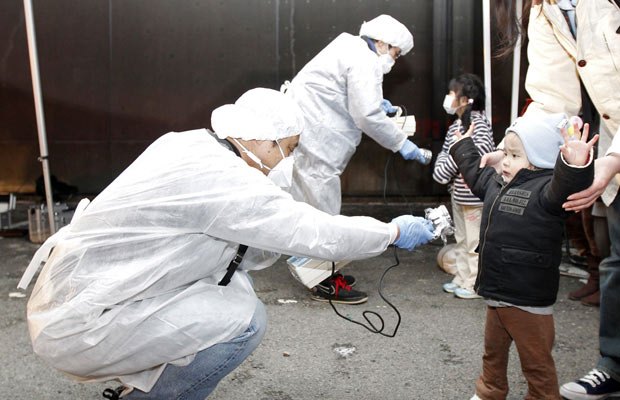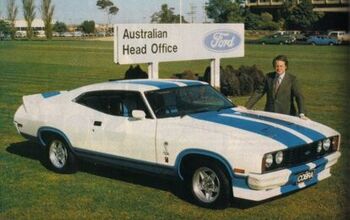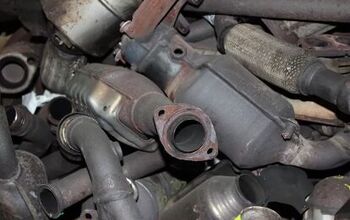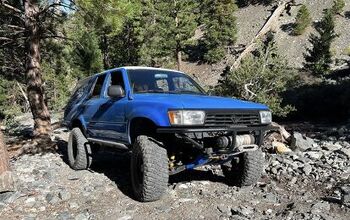Power Shortages To Impact Japanese Car Production For Months To Come

Even if Japan’s nuclear power plants will be brought under control, even if roads, rails and ports are back up, the Japanese car industry will have to deal with a more serious problem: Blackouts.
On Monday, Tokyo Electric Power, or Tepco, will start turning off the power for three hours each to selected areas. This will happen once, in some areas twice per day. When the schedule was put up on Tepco’s website, the server crashed. That was just the beginning of the problems.
Tepco had to shut down reactors at two nuclear power plants as well as five conventional power plants. Tepco is currently 10 million kilowatts short of demand.
“Japanese manufacturers, already hit by Friday’s earthquake in their own operations, will now have to deal with the rolling blackouts planned for greater Tokyo starting Monday,” writes The Nikkei [sub]. “Combined with the disruption of distribution networks, the outage is set to further hamper the companies’ ability to secure supplies of parts and materials.”
Power outages don’t just mean a three hour stop of work. Electric furnaces, used for castings, have to be brought down before the outage and back up afterwards, a long process. When China had power outages a few years ago, it severely affected the industry.
Steel plants of Nippon Steel & Sumikin Stainless Steel are currently shut down. Even if the facilities come back up, “blackouts would force them to shut down, likely impacting automakers and electronics manufacturers,” says The Nikkei [sub]. Tokyo Steel suspended operations at Tepco’s request and may have to shut their plant down if rolling blackouts continue.
Tepco plans to conduct the rolling blackouts through the end of April. Says the Nikkei:
“But the firm will be unable to meet demand in the summer, when air conditioner use pushes up demand as much as 50% from current levels, even if it receives power from other utilities and brings all its fossil-fuel-burning plants on-stream. The company could thus have to keep rationing in place over a prolonged period, forcing manufacturers to reduce output or move production to other regions.”
When Reuters asked Takuji Okubo, chief Japan economist at Societe Generale, about the biggest problem the Japanese industry faces, Okubo answered: “I would say the biggest risk is power.”
The Japanese auto industry already has been evacuating Japan. The current developments will most likely hasten their departure. Oddly enough, the yen is expected to rise sharply on Monday, and the dollar is expected to drop. “Japanese investors will dump overseas assets on Monday and bring their money home to help finance reconstruction,” writes Reuters. The wire service sees “the dollar plummeting versus the yen on Monday” and expects “a sharp slide in Treasuries since U.S. government bonds are a favorite asset of Japanese investors.” Japan is the second-biggest holder of U.S. government debt and has nearly $900 billion in dollar reserves. Some of these reserves will likely be used for rebuilding.

Bertel Schmitt comes back to journalism after taking a 35 year break in advertising and marketing. He ran and owned advertising agencies in Duesseldorf, Germany, and New York City. Volkswagen A.G. was Bertel's most important corporate account. Schmitt's advertising and marketing career touched many corners of the industry with a special focus on automotive products and services. Since 2004, he lives in Japan and China with his wife <a href="http://www.tomokoandbertel.com"> Tomoko </a>. Bertel Schmitt is a founding board member of the <a href="http://www.offshoresuperseries.com"> Offshore Super Series </a>, an American offshore powerboat racing organization. He is co-owner of the racing team Typhoon.
More by Bertel Schmitt
Latest Car Reviews
Read moreLatest Product Reviews
Read moreRecent Comments
- 1995 SC Man it isn't even the weekend yet
- ToolGuy Is the idle high? How many codes are behind the check engine light? How many millions to address the traction issue? What's the little triangular warning lamp about?
- Ajla Using an EV for going to landfill or parking at the bad shopping mall or taking a trip to Sex Cauldron. Then the legacy engines get saved for the driving I want to do. 🤔
- SaulTigh Unless we start building nuclear plants and beefing up the grid, this drive to electrification (and not just cars) will be the destruction of modern society. I hope you love rolling blackouts like the US was some third world failed state. You don't support 8 billion people on this planet without abundant and relatively cheap energy.So no, I don't want an electric car, even if it's cheap.
- 3-On-The-Tree Lou_BCone of many cars I sold when I got commissioned into the army. 1964 Dodge D100 with slant six and 3 on the tree, 1973 Plymouth Duster with slant six, 1974 dodge dart custom with a 318. 1990 Bronco 5.0 which was our snowboard rig for Wa state and Whistler/Blackcomb BC. Now :my trail rigs are a 1985 Toyota FJ60 Land cruiser and 86 Suzuki Samurai.


































Comments
Join the conversation
Hmm... It makes me wonder will strong Yen and production shortages will lead to price increase on Japan built cars and electronics?
In the face of monumental human tragedy, the glib and snarky commentary simply can't take even one day off. Is that really so much to ask?